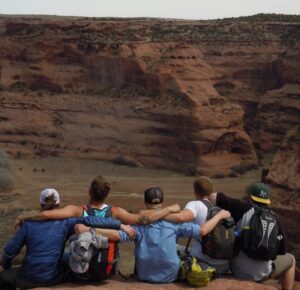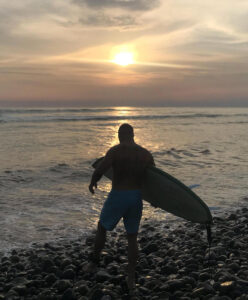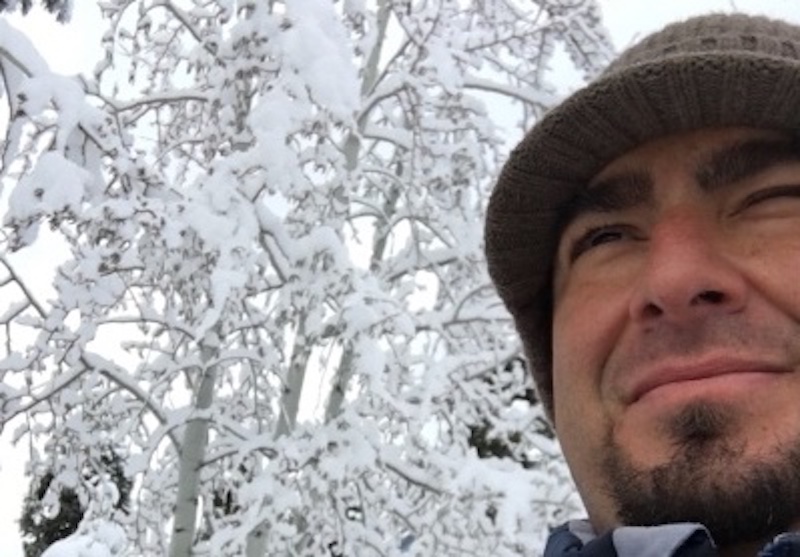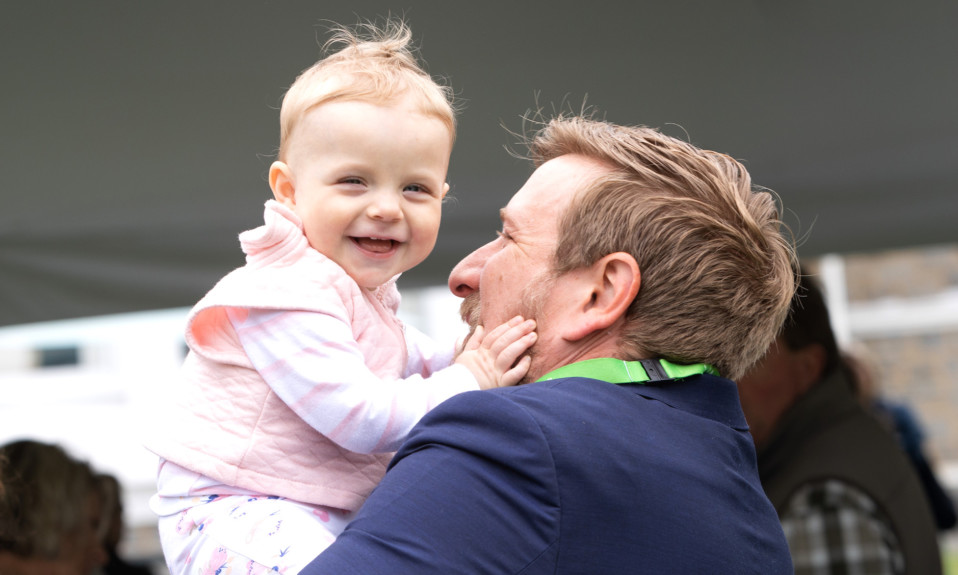The Back2Basics founder traveled a winding road, but he’s arrived at a place of peace and understanding
By Jason Langendorf
Roy DuPrez isn’t the type to approach life at an angle.
First impressions of the CEO and founder of Back2Basics Outdoor Adventure Recovery suggest someone who not only is willing to barrel headfirst into any challenge but also is prepared for it. Equal parts mountain man and entrepreneur, a combination surfer bro and support counselor, DuPrez has logged almost as many miles through the foothills and high country of Flagstaff, Ariz., where his program is headquartered, as he has on his own winding recovery journey.
DuPrez is upfront about that path—from swiping drinks off tables at family parties at age 7 to embracing a 12-step program before he was old enough to drive, to those humbling moments over the years when he struggled to avoid turning back to old impulses. But he believes the perspective he’s gained from his experiences, coupled with a commitment to training his body and mind, has empowered him to stay substance-free for 20 years now. That makes him a compelling example of recovery in action—a living, breathing avatar for a future untethered to addiction that that his clients can see with their own eyes.

“Since I got sober, I’ve been very vigilant about limiting my exposure to environments and elements that are going to compromise me,” says DuPrez, 45. “I believe in the peer group that I’m in. I believe those guys that are successful—men and women—have stayed in a recovery bubble of sorts, or more like keeping an ongoing commitment to what it takes to stay vigilant. I compare it to working out or exercising: If I’m away from any kind of gym or physical conditioning for a couple of weeks and then I want to start again, it’s much harder.”
That rigor makes up the backbone of Back2Basics. DuPrez, who founded the program in 2010, helps 18- to 30-year-old men walk themselves back from the precipice of addiction by pushing them to a different edge. The program engages participants in long weekends of outdoor activities (mountain biking, snowboarding, river rafting, rock climbing and more) and weekdays filled with traditional treatment and life-skills exercises (including individual and group counseling, meetings and community integration) that, according to the Back2Basics website, “challenge them both mentally and physically.”
But for all the physical demands of Back2Basics, DuPrez says it’s the structure and support network the program provides that gives his clients the best chance for lasting recovery and success.
“The dilemma with us as a demographic is that we’re either telling ourselves we’re going to do it on our own, or that nobody wants to hear my story, or that they don’t understand me,” DuPrez says. “We don’t have a community approach when we’re on our own. It’s such a layered recipe for disaster.”
“I Thought I was Gonna Ride Off into the Sunset”
DuPrez knows the struggle: Raised in Venice Beach, Calif., by parents with alcoholism, he was caught up in a ”really gnarly environment” and first entered recovery as a teenager. After two years of sobriety, he let his guard down, drifted from the work of recovery and stepped away from his support community. “Vulnerable to the elements,” DuPrez says, he slipped back into his old ways. But by the time he reached his mid-20s, he decided that the kind of life he wanted would require him to go all-in on recovery.
“So it was ‘How bad do I want to stay sober?’” DuPrez said. “You know, ‘What actions am I gonna apply?’ I mean, I hate to use all these clichés, but they’re kind of relevant. It was like, ‘I’m going to go to any lengths.’”
“I’ve had exposure to what the [12] steps, to what recovery, could get me through. I mean, it got me sober. That alone is a miracle.”—Roy DuPrez
Still, life has tested him. DuPrez has lost jobs and been up and down financially. Even after building a thriving business, he was rocked by personal loss. He was hit hard by the death of his father in 2009. He was warmed by the arrival of his son but then went through the wringer of a “horrible” divorce.

“I’m this guy who made it, and all of a sudden, that’s being ripped out from under me,” DuPrez says. “I thought I was gonna ride off into the sunset. I’m not really geared for success, you know—and then, all of a sudden, I’ve made it. I went to school, I got sober, I did all these things. I’m a guy that didn’t plan on being married, and now [was] married. I didn’t plan on having a kid, and I had a kid. I’ve got this successful business and, you know, I’m sought after in these leadership positions. Then the rug is kind of pulled out: ‘Oh, I’m no longer that—all those roles. So what am I now?’”
It’s the identity crisis that many people with addiction experience at one time or another. Throughout, DuPrez has managed to avoid substances and guide other people with addiction on their own journeys. He’s adamant that recovery isn’t a destination. It’s a line to be walked, a consistency of purpose. Tools to be picked up and used. He keeps returning to the same word: vigilance.
“I’ve had exposure to what the [12] steps, to what recovery, could get me through,” DuPrez says. “I mean, it got me sober. That alone is a miracle. I just always had this kind of blind faith that, ‘Hey, I can get through anything through this process,’ and I don’t think it was necessarily contingent on how much time I’d been sober.”
Back to the Basics with Back2Basics
That through line can be found in the Back2Basics sweat-equity approach. Stay the course. Keep pushing. One foot in front of the next.
DuPrez relishes the work. He demands it from his clients because he expects it—needs it—from himself.
“I really want to hold on to that,” he says, “and not only because I want to be sober. But because I want to grow as a human being.”














